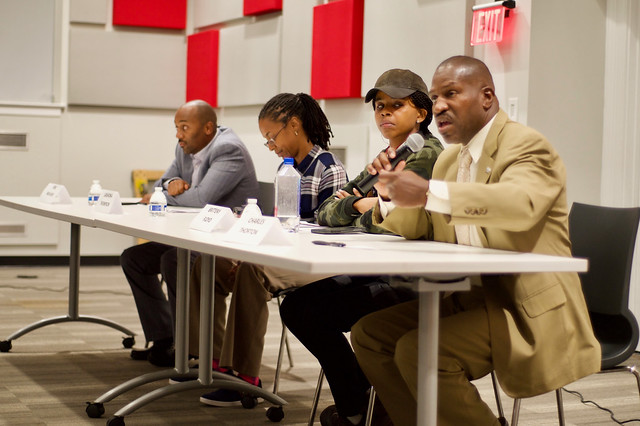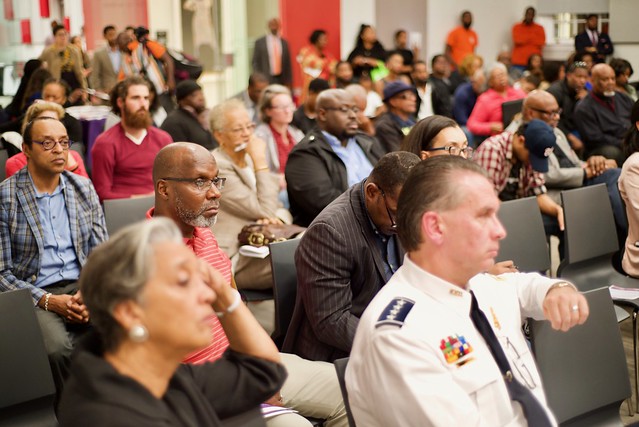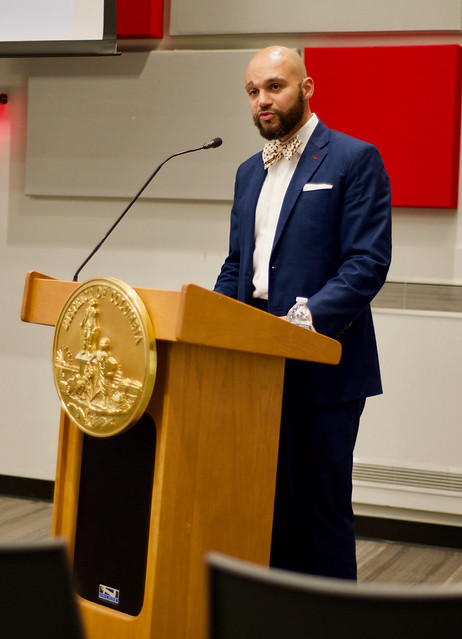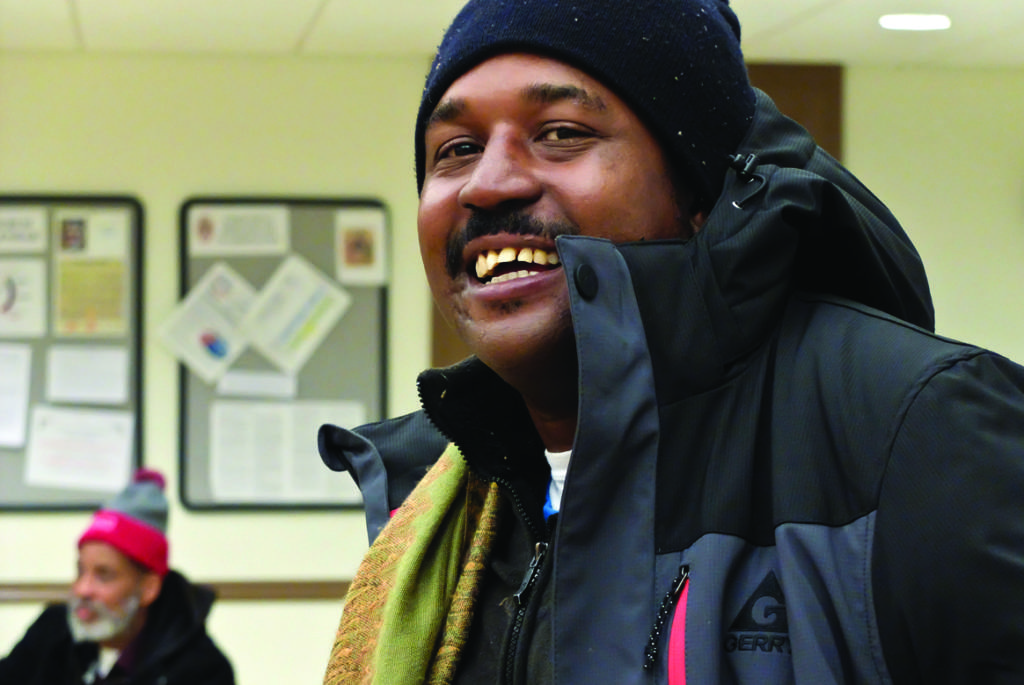When Charles Thornton returned home to the District from Lorton prison in 1990, he was not prepared for the world that awaited him.
“Although I knew that my family loved me, I did not know how to accept that love. I got released in March, and by June I was homeless, and I didn’t have to be,” said Thornton, the former director of the Mayor’s Office on Returning Citizen Affairs. “I stood across the street from my aunt’s house — who loved me — and I put my hand in a trash can to get something to eat. And all I had to do was knock on my aunt’s door and say I was home.”
Today, Thornton serves as chair of the D.C. Corrections Information Council and as special assistant to the D.C. Office of Human Rights. He attributes his successful turnaround to eventually finding a system of temporary housing, job training, and mentoring services. But not all returning citizens are so fortunate. A 2012 University of Maryland study found that among people released by the Department of Corrections in fiscal year 2007, approximately 62 percent were rearrested and 36 percent were reconvicted within three years. A 2011 survey by the Council for Court Excellence found the unemployment rate among returning citizens to be as high as 46 percent.
Thornton spoke on Nov. 2 at the R.I.S.E. Demonstration Center in Congress Heights as part of a panel that included other successful returnees Lashonia Thompson-El, Britteny Floyd, and Eric Weaver, all of whom work with the D.C. government on reentry issues. The event was organized by D.C. Councilmember Robert White, a co-sponsor of two bills introduced to the council that aim to ease the transition back into society after incarceration.

The Returning Citizens Opportunity to Succeed Amendment Act would require the Mayor’s Office on Returning Citizen Affairs to establish contact with inmates six months before they return home to the District to connect them to resources to support the transition process, and would help returning citizens get government identification documents before returning home and a $100-per-month transportation stipend to help them find jobs and housing.
A second bill, the Criminal Record Accuracy Assurance Act, would prevent sealed or expunged offenses and arrests without convictions from appearing on background searches, where they can impede efforts to obtain housing and employment.
The panelists reflected on the challenges they each faced when returning to their communities. The need for specialized mental health services was a consistent theme. Weaver compared prison to a war zone. “After being locked up for so long, you shut down all of your emotions.”
Reentry is a personal issue for Councilmember White, whose brother served time in the D.C. jail. “What you learn when you talk to returning citizens is that these are folks who just want an opportunity,” White said when introducing the panel. “If we can just crack the door open for our returning citizens, they will run through it and they will succeed.”
Several city officials were in attendance, including Metropolitan Police Chief Peter Newsham, who expressed his support for these efforts. “We cannot arrest our way out of the crime problem that we have in the District of Columbia,” Newsham said in response to another audience member’s question. “The way you change the behavior of somebody who has a substance abuse or mental health issue is you treat that underlying condition.”

[Nancy Ware on the intersection of public safety and second chances]
White emphasized the unique challenges facing formerly incarcerated District residents, citing a disjointed process that often includes federally managed agencies, along with the District’s persistent racial disparities in household wealth and educational achievement — noting that more than 90 percent of D.C. inmates are Black.
Despite these challenges, Thornton was careful to point out that D.C. policy on returning citizens issues is relatively progressive in comparison to the rest of the United States, noting that the Mayor’s Office on Returning Citizen Affairs is the only legislatively mandated agency for reentry in the country.

D.C. inmates also have their voting rights restored immediately upon release and those awaiting trial or with only misdemeanor convictions can cast their ballots even while jailed. Additionally, the city’s pre-trial system, unlike most of the U.S., does not require bail payments to release those awaiting their day in court.
A D.C. Council hearing on the Criminal Record Accuracy Assurance Act took place Nov. 9. and a hearing on the Returning Citizens Opportunity to Succeed Amendment Act is scheduled for Dec. 7.
The panelists and Councilmember White agreed that these two bills would represent important progress for returning citizens but that there is much more to be done. “This is redemption for us,” Thornton said. “We do this because we love and care for the next person to come out of these institutions.”







